Match the following itmes of List -I and List - II
List - 1
I. Stem tendril, formed from axillary bud
II. Stem tendril, formed from terminal bud
III. Leaftendril, formed from leaflet
IV. Leaftendril, formed from upper
List-II
A. Grapevine
B. Nepenthes
C. Watermelon
D. Pisum part of petiole
The correct match is
The correct Answer is:B
To solve the matching question between List-I and List-II, we will analyze each item in List-I and determine the corresponding item in List-II based on the characteristics of the plants mentioned.
1. Identify Stem Tendril from Axillary Bud:
- Stem tendrils are specialized structures that help climbing plants support themselves. When formed from axillary buds, they originate from the leaf axil.
- Match: This is seen in the Grapevine (A), which is a climbing plant that uses axillary buds for support.
- Match Result: I - A
2. Identify Stem Tendril from Terminal Bud:
- Stem tendrils formed from terminal buds grow from the tip of the plant where new growth occurs.
- Match: This is characteristic of Watermelon (C), which also has climbing tendencies and utilizes terminal buds for its tendrils.
- Match Result: II - C
3. Identify Leaf Tendril from Leaflet:
- Leaf tendrils can originate from leaflets, which are smaller parts of compound leaves.
- Match: This is found in Pisum (D), commonly known as pea plants, which have leaf tendrils that assist in climbing.
- Match Result: III - D
4. Identify Leaf Tendril from Upper Part of Petiole:
- Leaf tendrils can also form from the upper part of the petiole, which is the stalk that attaches the leaf to the stem.
- Match: This is characteristic of Nepenthes (B), which has modified leaf structures that form pitcher-like traps.
- Match Result: IV - B
Final Matches:
- I - A (Grapevine)
- II - C (Watermelon)
- III - D (Pisum)
- IV - B (Nepenthes)
Summary of Correct Matches:
- I → A
- II → C
- III → D
- IV → B
- Stem tendrils are specialized structures that help climbing plants support themselves. When formed from axillary buds, they originate from the leaf axil.
- Match: This is seen in the Grapevine (A), which is a climbing plant that uses axillary buds for support.
- Match Result: I - A
- Stem tendrils formed from terminal buds grow from the tip of the plant where new growth occurs.
- Match: This is characteristic of Watermelon (C), which also has climbing tendencies and utilizes terminal buds for its tendrils.
- Match Result: II - C
- Leaf tendrils can originate from leaflets, which are smaller parts of compound leaves.
- Match: This is found in Pisum (D), commonly known as pea plants, which have leaf tendrils that assist in climbing.
- Match Result: III - D
- Leaf tendrils can also form from the upper part of the petiole, which is the stalk that attaches the leaf to the stem.
- Match: This is characteristic of Nepenthes (B), which has modified leaf structures that form pitcher-like traps.
- Match Result: IV - B
- I - A (Grapevine)
- II - C (Watermelon)
- III - D (Pisum)
- IV - B (Nepenthes)
- I → A
- II → C
- III → D
- IV → B
Similar Questions
Knowledge Check
- Question 1 - Select One
Match the List-I, List-II and List-III and select the answer from the given codes:
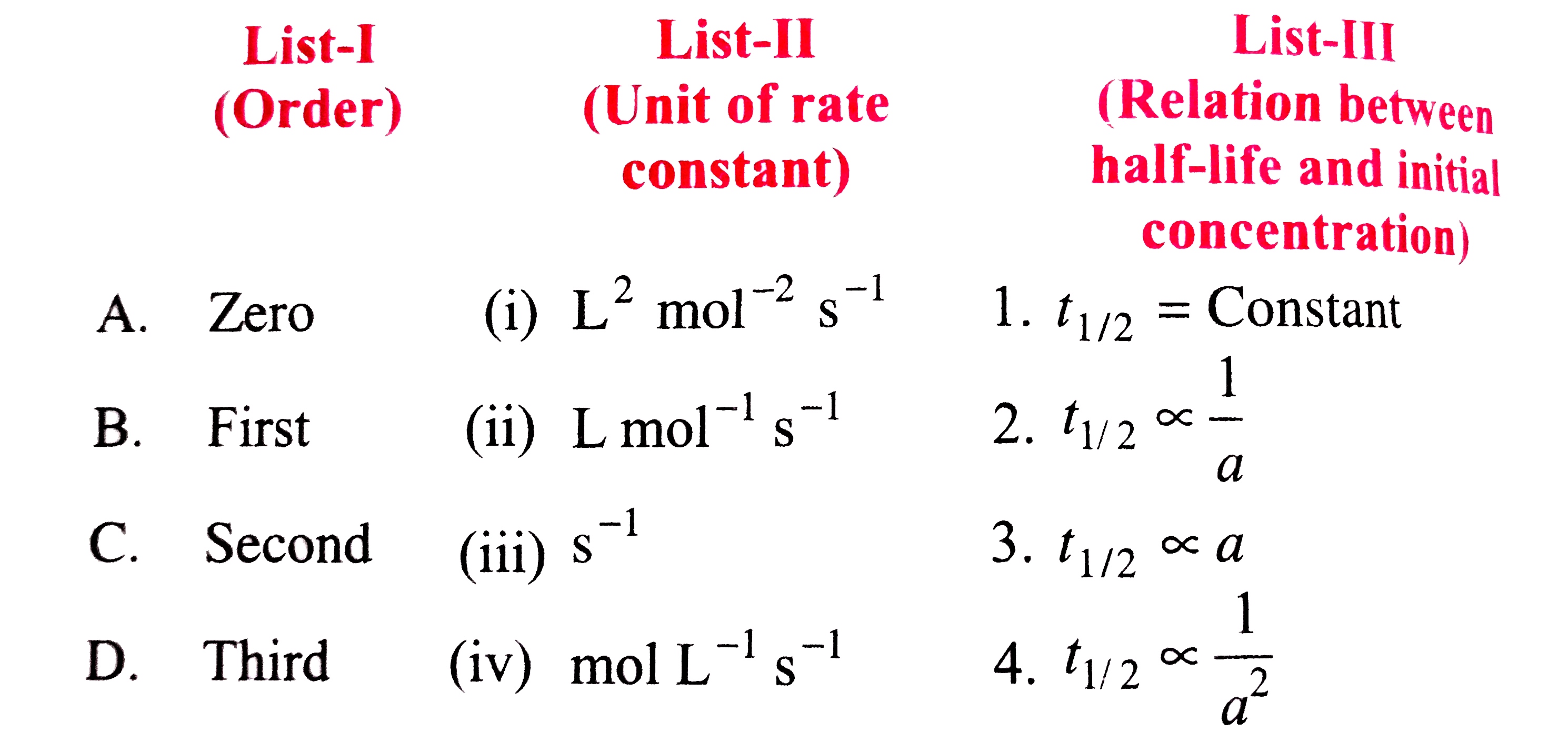 AABCDi−2ii−4iii−3iv−1BABCDi−4iv−3ii−2iii−1CABCDiv−3iii−1ii−2i−4DABCDii−2i−1iii−3iv−4
AABCDi−2ii−4iii−3iv−1BABCDi−4iv−3ii−2iii−1CABCDiv−3iii−1ii−2i−4DABCDii−2i−1iii−3iv−4 - Question 2 - Select One
Match the List-I, List-II and List-III:

Select the correct answer from the following codes:AABC(Y,1)(X,2)(Z,3)BABC(X,2)(Y,3)(Z,1)CABC(X,3)(Y,1)(Z,2)DABC(Y,1)(X,3)(Z,2) - Question 3 - Select One
Match List-I with List-II. Select the correct answer from the codes:
 AA-2,B-4,C-3,D-1BA-2,B-3,C-4,D-1CA-1,B-3,C-2,D-4DA-3,B-1,C-4,D-2
AA-2,B-4,C-3,D-1BA-2,B-3,C-4,D-1CA-1,B-3,C-2,D-4DA-3,B-1,C-4,D-2
Match the list-I and list-II and select the correct answer from the codes given below the lists:
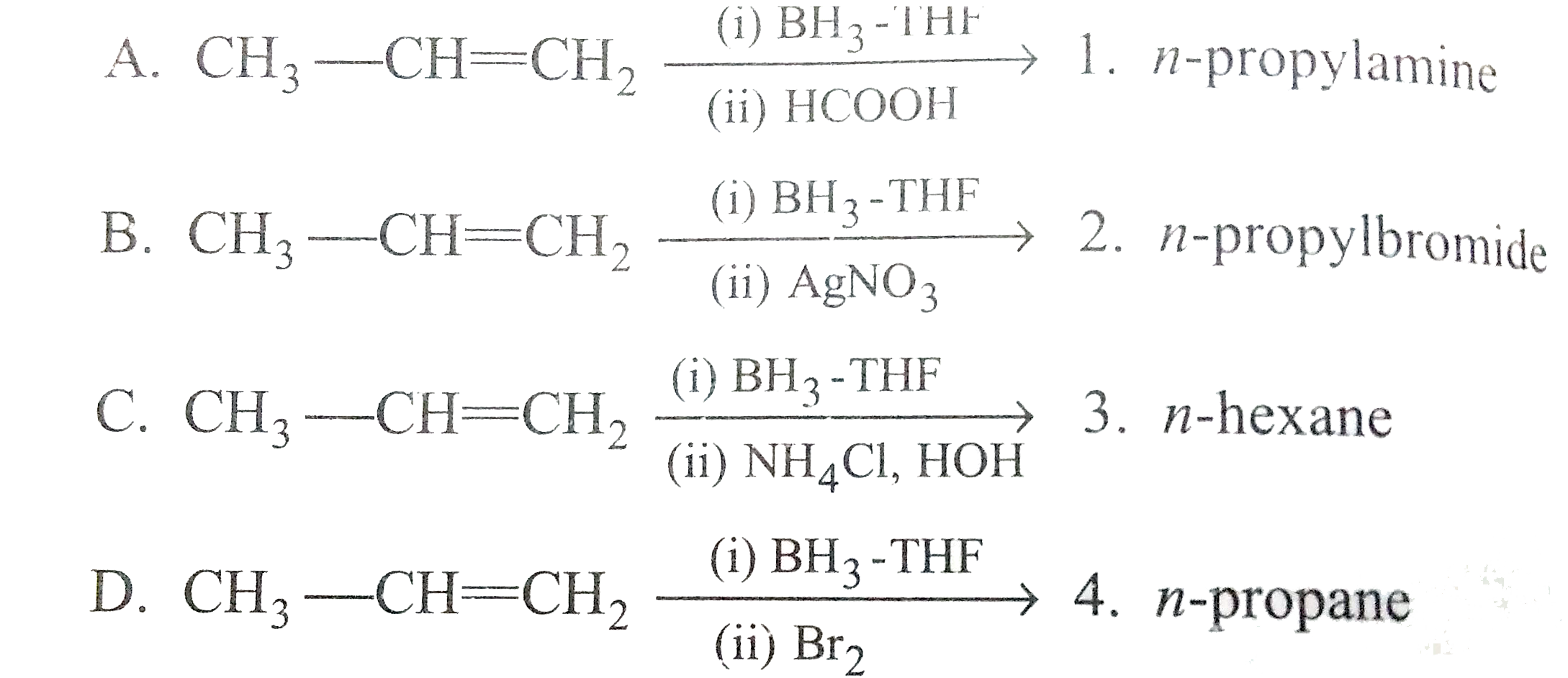 View Solution
View SolutionMatch List - I with List - II :
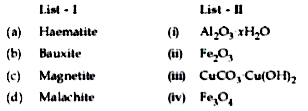
Choose the correct answer from the options given below :View SolutionMatch List-I and List - II .
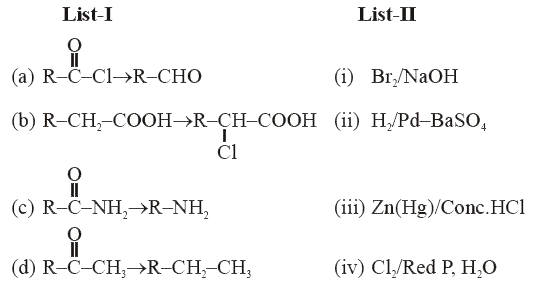
Choose the correct answer from the options given below :View SolutionMatch List-I and List - II .
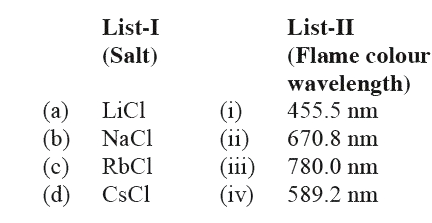
Choose the correct answer from the options given below :View SolutionMatch the List-I with List-II and choose the correct answer from the codes:
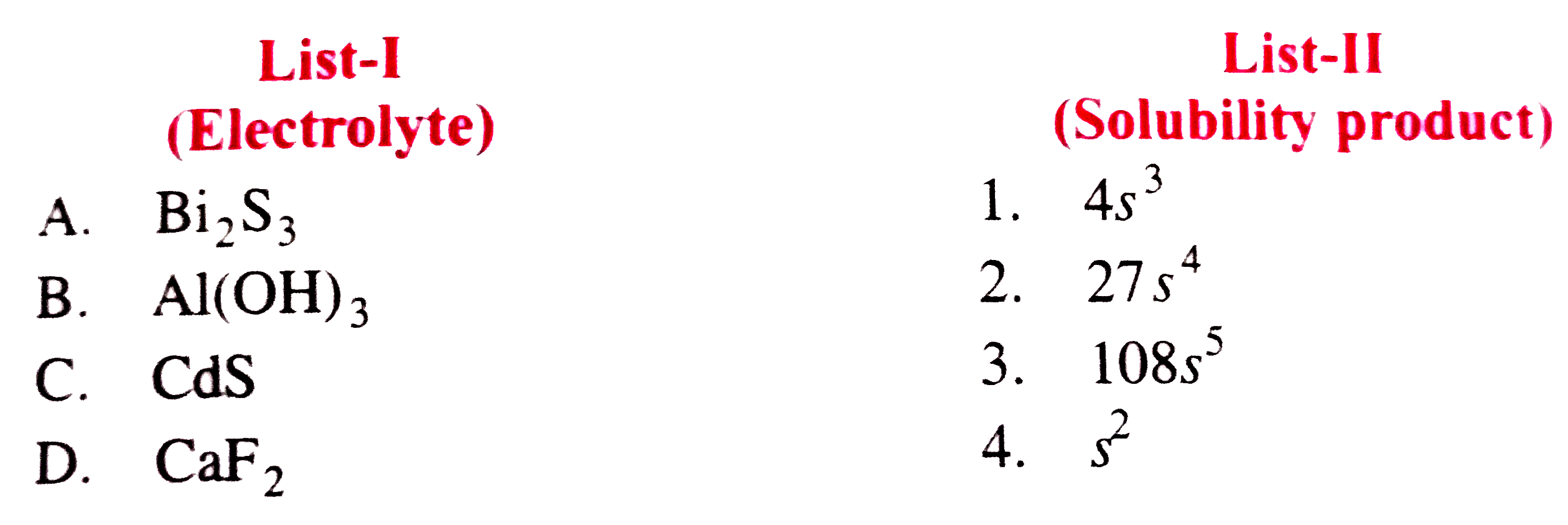 View Solution
View Solution


